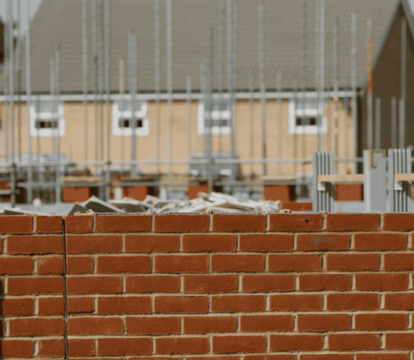For self-employed people, getting a mortgage can feel more complicated than it should be. Lenders often want extra evidence of your income, and the process can seem confusing or even discouraging. That’s why it’s more important than ever to have a trusted mortgage broker like Quealy & Co Financial Services on your side.
We work with the whole of the mortgage market and know which lenders are most flexible with self-employed applicants, and ensure your application is packaged in the strongest possible way. Best of all, we do not charge a broker fee, so you receive expert guidance without worrying about additional costs.
Getting a Mortgage When You’re Self-Employed
You're not applying for a special "self-employed mortgage", you’re applying for the same products as everyone else. The difference is that you need to show a reliable income, and that often means more documentation.
Self-certification mortgages, where borrowers declared income without proof, were banned in 2014. But don’t worry, with the right preparation, being self-employed won’t stop you from securing a great mortgage deal.
Do Self-Employed People Pay Higher Mortgage Rates?
No. Being self-employed doesn’t automatically mean paying higher mortgage rates. If you can prove your income is steady and that you can afford the repayments, you’ll qualify for the same deals as someone in a permanent role.
Instead, your mortgage rate depends on:
- Deposit size – The larger your deposit, the lower your rate is likely to be.
- Credit score – The stronger your credit history, the more deals you’ll have access to.
👉 Tip: It’s worth checking your credit report before applying. Correcting errors or boosting your score can improve your chances of being accepted.
What Documents Do You Need for a Self-Employed Mortgage?
Just like any other applicant, you’ll need:
- Proof of ID (commonly passport or driving licence)
- Proof of Address (commonly recent utility bill or driving licence (if not used for above)
- Personal Bank statements for the past 3–6 months
- Potentially Business bank statements depending on the lender
- Evidence of your deposit funds
If you’re self-employed, you’ll also need to provide:
- Usually 2+ years of certified accounts (prepared by an accountant if possible) though a lender may consider 1 year’s accounts – Quealy & Co can advise
- SA302 forms and HMRC tax year overviews for the last 2–3 years
- Contractors: proof of ongoing or future contracts
- Company directors: evidence of dividends or retained profits
Having these ready before you apply makes the process much smoother.
How Mortgage Lenders Assess Self-Employed Income
Lenders want to see consistency and stability in your income. How they calculate this depends on your business setup:
- Sole traders: Usually an average of your net profit from the last 2–3 years.
- Limited company directors: Most lenders use salary plus dividends, but some will also consider retained profits.
- Partnerships: They’ll look at your share of the net profit.
- Contractors/freelancers: Often an average of income over 2–3 years. Some lenders may accept an annualised day rate if you can show regular contracts.
👉 This is why up-to-date accounts and accurate tax documents are crucial for self-employed mortgage applications.
How to Improve Your Chances of Getting a Mortgage
Here are some practical steps to strengthen your application:
- Gather your SA302s early – ideally 2 years’ worth.
- Use a qualified and accredited accountant – accounts prepared professionally carry more weight.
- Save the largest deposit you can – bigger deposits mean better deals.
- Boost your credit score – register on the electoral roll, close unused accounts, and fix any errors.
How Long Do You Need to Be Self-Employed for a Mortgage?
Most lenders want to see at least two to three years of accounts, but don’t panic if you’ve been self-employed for less time. If your previous role was similar to what you’re doing now, some lenders may be flexible.
It would be wise to book an appointment with a Mortgage Advisor at Quealy & Co who will be able to provide advice on obtaining a mortgage with your specific self-employed situation in mind.
Finding the Best Self-Employed Mortgage Deals
The difference between a good mortgage deal and a poor one can add thousands to your repayments. Even a small 0.5% difference in rate could cost nearly £2,000 over three years on a £200,000 mortgage.
Multiple applications can also harm your credit score if you’re rejected. That’s where using a mortgage broker really helps.
At Quealy & Co Financial Services, we provide mortgage advice with no broker fee. As an independent, FCA-authorised broker, we search the whole market to match you with lenders who are open to self-employed applications, saving you time, money, and stress.
📞 Ready to start your self-employed mortgage journey? Get in touch with our expert mortgage team today.
✅ Key takeaway: Being self-employed doesn’t stop you from getting a mortgage. With the right documents, a strong credit score, and expert advice from Quealy & Co, you can secure a competitive deal that works for you.
Call us: 01795 505761
Email us: mortgages@quealy.co.uk
**Your home may be repossessed if you do not keep up repayments on your mortgage.**
Quealy & Co Financial Services Ltd. is authorised and regulated by the Financial Conduct Authority No. 919693
Other Stories
23 January 2026
Ski-In, Ski-Out Living at L’HÉRITAGE, Morzine
19 January 2026

 by
by 




